
The corridor between NYC and Washington DC is rich in life science talent, technical know-how and business development expertise. Although many regions throughout the country vie to attract talent and capital, the unique ecosystems that exist in the east coast’s major metropolitan cities, including Washington DC, New York, and Boston, mean that health tech founders can immediately access resources and build the strategic partnerships to support their rapid growth.
This event will focus on New York City and Washington, DC, two key areas offering a number of advantages for health tech founders. The event will be an opportunity to learn from people leading region-wide initiatives in NYC and Washington DC as well as network with peers building health technology startups. Come join us to learn more about unique opportunities and funding in the NYC and DC regions focused on supporting the transformation of healthcare.

Relevant Health, a newly launched innovative health technology startup accelerator focused on bringing products to market, announced that it is now accepting applications from health tech startups for its Fall 2015 class. Additionally, the accelerator launched its website and the portal to its streamlined application process. U.S. and international startups are encouraged to apply.
Relevant Health’s five-month program involves an intensive product-focused curriculum that gives founders of health tech startups the skills to define, develop, position and launch a viable health tech product. The new accelerator will be based out of a brand-new cowork space in the Rockville Innovation Center, centrally located in the heart of the Montgomery County (Maryland) life sciences corridor. Companies admitted to the accelerator will have access to the cowork facility along with other support that includes up to $50,000 in funding, mentorship, development support from a pool of software engineers, and access to the local health tech ecosystem.
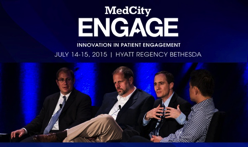
Tuesday, July 14, 2015 at 8:30 AM - Wednesday, July 15, 2015 at 12:30 PM
Enough talk about patient engagement. Take your insights and mold them into a mandate.
Are your ideas strong enough to develop a real patient engagement solution – and then present that idea to the likes of the chief technology officer of Health and Human Services?
Attendees of MedCity ENGAGE on July 14-15 in Bethesda will do just that. Teams will work on three issues critical to patient engagement – led by healthcare organizations already dedicated to the issue: Kindred Healthcare, Sharecare and Lumiata.
Each group will present their ideas to the full MedCity ENGAGE audience. The audience will vote, and MedCityNews.com will publish the winning idea. Our journalists will then continue to examine the concept throughout the rest of the year, writing stories that explore the ideas developed by the winning patient engagement solution.
Spaces are filling up fast. Sign up to attend MedCity ENGAGE and then register to join in the challenges.

The sun is just beginning to rise as Robyn Stoller sits busily typing at her computer. A steaming mug of coffee rests next to her, while she quickly and methodically scrolls through he hundreds of emails waiting for a reply. Though dawn is just beginning to break, Stoller has already been at work for hours; fielding press inquiries, drafting blog posts and responding to heartfelt messages from cancer patients and their families. Running her nonprofit, CancerHawk, is constant work, but for Stoller it's all part of her journey. A journey that, despite its tragic nature, has projected her life into a single mission - to connect cancer patients to the critical resources and information they need.
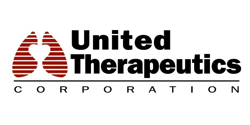
Martine Rothblatt wants to transform the way we transplant organs and she doesn’t take no for an answer. When her daughter came down with a rare, life-threatening illness several decades ago, Rothblatt started researching the illness, and founded a company to develop a treatment for it.
In the mid-1990s, Rothblatt’s daughter Jenesis developed pulmonary arterial hypertension, a rare condition in which the arteries in the lungs and the heart become constricted, making it hard for blood to flow through them. Doctors gave her a grim prognosis: Without a lung transplant, she had roughly three-to-five years to live.

The buzz word was growth at this year's EY Entrepreneur of the Year awards on Thursday night in Baltimore as seven companies took home top honors in the annual competition that rewards innovation and financial performance.
The black-tie gala at the Marriott Waterfront showcased EY's 24 finalists for the Maryland region before the winners were announced.A common theme was that many started in their living room or basement before becoming companies that in some cases employ hundreds of people.
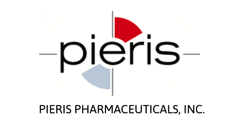
Pieris Pharmaceuticals, Inc. (NASDAQ: PIRS), a biotechnology company advancing its proprietary Anticalin® biotherapeutic technologies, today announced the pricing of a public offering of 9,090,909 shares of its common stock at a public offering price of $2.75 per share. All shares of common stock are being offered by the company. In addition, Pieris has granted the underwriters a 30-day option to purchase up to an additional 1,363,636 shares of common stock at the same price to cover any over-allotments.
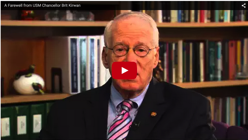
Chancellor Brit Kirwan reflects on the progress the University System of Maryland (USM) has made during his tenure as chancellor. He expresses gratitude to the USM community for the work it has done to elevate the quality of USM education, fuel the state’s economic development, and establish USM as a national model for higher education.

To this day, the CEO of Bethesda-based GetWellNetwork Inc. still can't stand the smell of Domino's pizza.
"It smells like chemo," Michael O'Neil said of what used to be his favorite meal, until he was treated for non-Hodgkin lymphoma more than 15 years ago.

The University of Maryland has been named to the 2015 class of Innovation & Economic Prosperity Universities by the Association of Public and Land-grant Universities (APLU). The designation honors 18 universities working with public and private sector partners in their states and regions to support economic development through a variety of activities, including innovation and entrepreneurship, technology transfer, talent and workforce development, and community development.
“Public universities serve as economic engines for their local communities and states by conducting cutting edge research to reach new breakthroughs and developing the talent to help existing businesses grow stronger and enabling new ones to develop and thrive,” said APLU President Peter McPherson. “The 18 institutions in the 2015 class of Innovation & Economic Prosperity Universities serve as wonderful models of how public research universities extend beyond their campuses to engage their communities in economic development that create jobs and improve lives.”

GlycoMimetics, Inc. (NASDAQ: GLYC) announced today that Pfizer Inc. (NYSE: PFE) has dosed the first patient in the RESET (Rivipansel: Evaluating Safety, Efficacy and Time to Discharge) study - a Phase 3 clinical trial assessing the efficacy and safety of rivipansel for the treatment of vaso-occlusive crisis (VOC) in patients hospitalized with sickle cell disease who are six years of age or older. The start of this trial triggered the second of two milestone payments from Pfizer to GlycoMimetics totaling $35 million for Phase 3 initiation. GlycoMimetics received a $15 million milestone payment from Pfizer in May 2014.

The Mayo Clinic’s Jacksonville, Florida unit and Silver Spring, Maryland-based biotechnology company United Therapeutics Corporation have announced that they will collaborate on construction and operation of a lung restoration center to be located on Mayo’s Jacksonville campus. The project’s goal is to significantly increase the volume of lungs available for transplants for a range of patients with various lung diseases, including those with PAH, by preserving and restoring selected marginal donor lungs, thereby making them viable for transplantation.
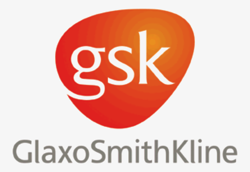
Confucius says “To Get Bigger Sometimes You Must Be Smaller.” Alright, so I made that up but that seems to be the thinking behind GlaxoSmithKlein’s (GSK - Analyst Report) move to sell two meningitis vaccines to rival Pfizer (PFE - Analyst Report), in order to satisfy antitrust concerns after GSK’s recent acquisition of the vaccine business from Novartis. Sound confusing? Well it is.

Johns Hopkins is expanding its commitment to Baltimore on a number of fronts as the city faces "a time in need of new thinking and of urgent action," Johns Hopkins University President Ronald J. Daniels said Monday night at a gathering of community, political, and faith leaders in West Baltimore.
Daniels discussed efforts to support city schools, including new partnerships with Barclay Elementary/Middle School and Margaret Brent Elementary/Middle School, and the previously announced hiring of up to 300 Baltimore youth as part of the institution-wide summer jobs program. He pointed to Johns Hopkins' current ex-offender hiring program and work that is under way to develop more job training resources. He also previewed the roll-out of an expanded program to increase local hiring, purchasing, and contracting.

The Institute of Human Virology at University of Maryland School of Medicine has received a five-year, $24.5 million grant to help fight AIDS in Africa.
Through the grant from the Centers for Disease Control and Prevention, Baltimore researchers will focus on treatment programs that have long-term potential to address Botswana’s HIV/AIDS epidemic. The grant is part of the U.S. President’s Emergency Plan for AIDS Relief, a $48 billion initiative launched in 2004 to target global infectious diseases.
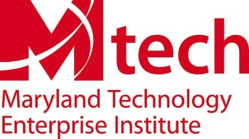
Get answers now from experienced entrepreneurs and legal/business professionals on how to build a successful startup company. Receive free and impartial advice, brainstorm business strategies, investigate funding opportunities and learn about the vast resources available to entrepreneurs in Maryland.

Thirty-six mentors from the schools of medicine, pharmacy, and nursing at the University of Maryland, Baltimore (UMB) will be paired with 30 Baltimore City high school students, ages 16 to 18, for a five-week-long Summer BioScience Internship Program. The goal of the program is to teach students about careers in biomedical research through hands-on learning, and to link the students to faculty members who can support, guide, and inspire them to pursue careers in science research.

The Universities at Shady Grove (USG) announces the addition of six new members to the USG Board of Advisors, a formally constituted body established under the auspices of the University System of Maryland Board of Regents.
The new USG board members include:
- Daniel Abdun-Nabi, President and Chief Executive Officer of Emergent BioSolutions Inc.
- Jay Clarke, Senior Vice President, Supply Chain Operations of Total Wine and More.
- John Kenyon, Senior Vice President of Engineering Staff for Hughes Network Systems.
- Roya Mohadjer, Senior Strategic Planner and IS&GS STEM Leader for Lockheed Martin.
- Michael O’Brien, Global Head of Corporate Communications for MedImmune.
- Larry E. Walker, Principal of The Walker Group.

This is the second in a 3-part series about the use of crowdfunding in health and biotech start-ups. We started with the story of a tech start-up which set records for funding through a Kickstarter campaign, triggering the interest of entrepreneurs in capital- intensive industries (Part 1: The Beginning). Part 2 discusses the JOBS Act and the government’s attempt to overcome regulatory hurdles facing companies which want to use crowdfunding to raise equity investment capital. Part 3 will address some Potential Dangers inherent in the system of crowdfunding being devised. We hope you find the series educational and invite you to contact the authors with questions.

FlexEl LLC, a custom battery solutions company, will open a research, development and manufacturing facility in Prince George’s County, Md. FlexEl was spun out of the University of Maryland based upon a thin film battery technology in 2008. The company, which won the Maryland Incubator Company of the Year award in 2010 and launched as a startup at the University of Maryland, will lease more than 10,000 square-feet from the university. FlexEl currently has 10 full-time employees and plans to add an additional 50 new jobs over the next five years.
“FlexEl is an innovative company with tremendous potential and we are excited to be working with Prince George’s County and the University of Maryland to help FlexEl move to the next level of development,” said Governor Larry Hogan. “It is critical that we support home-grown companies like FlexEl that are working to develop the next generation of technology.”

Sensassure, a Canadian aging-tech startup, has temporarily relocated to Columbia, MD to work with Maryland-based aged-care services provider Lorien Health Systems to continue developing Sensassure's hardware/software solution for managing urinary incontinence in the elderly. Sensassure's product utilizes a sensor to detect urination events, which alerts nursing staff when changes are required. Sensassure offers a substantial upgrade from the current manual care processes employed by nursing staff, which lead to missed incontinence events that develop into expensive secondary conditions such as rashes and bed-sores, as well as reducing the time spent checking patients who have not had an event. While in Maryland, Sensassure's co-founding team is physically living at one of Lorien's assisted living communities as they begin their pilot program. You can check out their video blog here.

While federal, state and local policies aim to support entrepreneurs through grants and tax breaks that make capital more easily attainable, the latest Entrepreneurship Policy Digest released by the Kauffman Foundation, America's leading entrepreneurship think-tank, says entrepreneurs most often turn to two forms of private external financing: debt and equity.
The Policy Digest says debt is the most common source of financing for new businesses, with about 40% of a business’ initial startup capital coming from bank-financed debt. Equity is a less common form of initial funding, according to the Digest, with less than 3% of new firms funded by angel investors and less than 1% funded by venture capitalists.
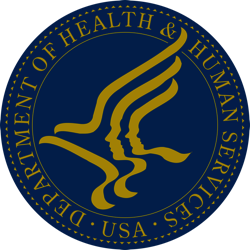
Department of Health and Human Services Secretary Sylvia M. Burwell today announced the seven winners of the 2015 HHS Innovates Awards. This annual award program, in its eighth round, recognizes creative solutions developed by HHS employees in response to some of the nation’s most challenging problems in health, health care and government. Winners this year reflected a number of collaborative innovation projects representing seven different operating divisions (winners listed below).

The global population is aging as life expectancy increases. That means not only is demand for healthcare rising, but the very nature of that care is changing. In this interview, the CEO of Swiss pharmaceutical company Novartis, Joseph Jimenez, discusses with McKinsey’s Rik Kirkland issues including the emerging need for regenerative medicine, how digitization is driving innovation, and why Novartis is shifting to an outcomes-based approach for patient treatments. An extended and edited transcript of Jimenez’s remarks follows.

In a cooperation between the Swiss Federal Institute of Technology in Zurich and Israel Institute of Technology (Technion) scientists have developed microscopic “nanoswimmers” that can penetrate blood and even thicker liquids that exist within the body, something that corkscrews modeled on bacterial flagella have been disappointingly bad at. The tiny devices are made of three connected chains, one made of a polymer and two consisting of nanowires that can be influenced by an external magnetic field to flap in a given direction. This allows the system to control the direction in which the nanoswimmers are moving, so any on-board cargo such as drugs or some sort of nanoparticles can be precisely placed inside a tumor, for example.

For those healthcare providers still resistant to technology, you've got a problem on your hands: You're going to be left behind. This is where healthcare it going – with or without you.
That's according to a new Accenture report, Healthcare Technology Vision 2015, which lays out five key trends in the industry that show adaptation might be the best business model.

For many sea creatures, regrowing a lost limb is routine. But when a young jellyfish loses a tentacle or two to the jaws of a sea turtle, for example, it rearranges its remaining limbs to ensure it can still eat and swim properly, according to a new study published June 15 in Proceedings of the National Academy of Sciences. The discovery should excite marine enthusiasts and roboteers alike, the authors say, because the jellyfish’s strategy for self-repair may teach investigators how to build robots that can heal themselves. “It’s another example of nature having solved a problem that we engineers have been trying to figure out for a long time,” says John Dabiri, a biophysicist at Stanford University who had discussed the project with the study investigators but was not involved with the research.

In recent years, the applications for 3D printing in healthcare have been expanding into the limitless. Once reserved primarily for prototyping, the technology has quickly proliferated in the life sciences – with applications that range from personalized surgical implants, scaffolding and tissue generation.
The 3D printing market in healthcare will reach $4 billion by 2018, according to a report from British market research firm Visiongain. The most well-known use of 3D printing may be Organovo, the publicly traded San Diego company that likens cells to ink in a 3D printing process that builds live human tissue.

In a world exploding with new technologies and gadgets to fit the up and coming generations, it seems that the older generations are getting cast aside. Even though it seems like new healthcare entrepreneurs are always moving forward, some companies, like HomeHero, took a generational step back to work in the senior care industry. Kyle Hill is the CEO and co-founder of HomeHero, a website to find in-home, affordable care for seniors. He started the company in the hopes of making caring for loved ones easier, especially when distance separated them.
The motivation to work in senior care was inspired by Kyle’s grandmother. Since their family was so separated, it made it very difficult to ensure she was getting the in-home care she needed. After he observed the poor care his family received, especially witnessing his grandmother being left alone for almost a whole day, completely immobile, and the lack of screening caregivers received, Hill and co-founder and Chief Operating Officer Mike Townsend decided to create a company that provided the best caregivers for the senior community.

At a recent workshop, more than 100 technical and business executives spoke with the National Institute of Standards and Technology (NIST) and Stanford University about their most pressing cybersecurity challenges. In this webcast, Nate Lesser, Deputy Director of the National Cybersecurity Center of Excellence (NCCoE) at NIST, will share with you the five major challenges identified in that workshop and how the NCCoE plans to address them. Topics include:

More than 140 Maryland companies, organizations participated in this year’s global life sciences gathering in Philadelphia
The Maryland Department of Business and Economic Development (DBED) will be partnering with the Tech Council of Maryland (TCM) to promote the state’s life sciences industry at the 2016 BIO International Convention, June 6-9, 2016 in San Francisco. For nearly a decade, Maryland has had a significant presence at the convention, which is the largest worldwide gathering of the bioscience industry that attracts more than 15,000 attendees from 60 countries. DBED and TCM will partner on the state’s BioMaryland Pavilion, which features both Maryland companies and industry organizations, and work together to highlight Maryland companies at the convention.

Grotech Ventures is aiming to raise $200 million for its next fund, called Grotech Ventures III, according to an SEC filing. The Vienna firm is one of the most active venture capital investors in the area, along with firms like Revolution LLC, Columbia Capital and New Enterprise Associates. Here's a quick look at some of its more notable investments:

MedStar Health, the largest not-for-profit health system in Maryland and the Washington, D.C. region, has become the newest Founding Member of Project Catalyst|The Power of We. The program gives developers of popular and emerging products insight into how Americans 50-plus use technology, in order to identify ways to improve the devices for mature consumers. By aligning with the country's preeminent advocacy organization for older Americans, MedStar will help spur innovation in new and emerging digital technologies, products and experiences that can improve the lives of the rapidly growing 50-plus population.